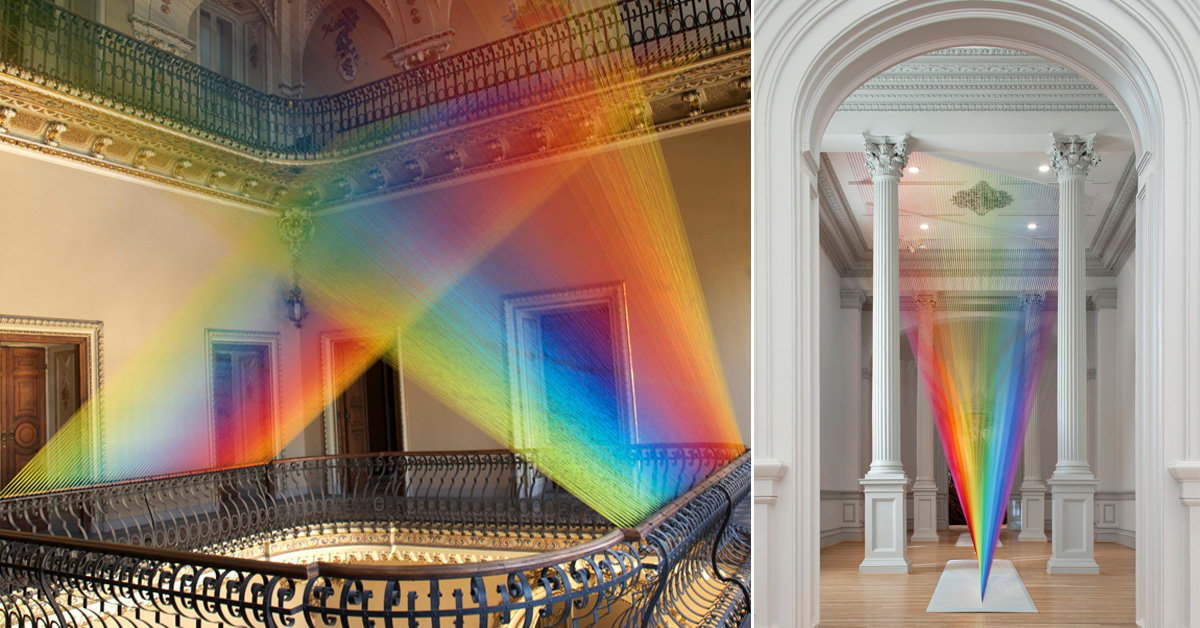
- Select a language for the TTS:
- UK English Female
- UK English Male
- US English Female
- US English Male
- Australian Female
- Australian Male
- Language selected: (auto detect) - EN
Play all audios:
_Metal Gear creator Hideo Kojima is widely regarded as one of video gaming’s auteurs. Though the 53-year-old is most closely associated with his work leading the production of some of the
most beloved narrative games of the past 30 years, his original ambition, prior to joining Konami in 1986, was to become a movie director. His passion for film has long informed his work in
games, leading most recently to a collaboration with director Guillermo del Toro on his upcoming PS4 exclusive Death Stranding, which we should see another glimpse of at E3 on June 12._
_Given that it is still more than a year from release, Kojima is reluctant to share details about his new game, but he’s eager to share his passion for movies and how they connect with his
own work. In the following essay he explores the history of the Alien movies following last month’s release of Ridley Scott’s Alien Covenant, and – in a possible nod to his own legacy –
questions who creative works truly belong to once they become ongoing franchises._ In the latter half of the 1970s, screenwriter Dan O’Bannon, who was working on an early version of _Alien_
– then known as _Memory_ – was invited by Alejandro Jodorowsky to work on his film adaptation of _Dune. _For the moment, _Memory_ was put on hold, relegating _Alien_ to the recesses of
O’Bannon’s mind. _Dune_, however, eventually fell through and O’Bannon returned to the script. With support from friends and a merger with another of his scripts entitled _Gremlins_, _Alien_
took shape and the script was approved by the eventual producers of the film: Gordon Carroll, David Giler and Walter Hill. EDITOR’S PICKS Before _Alien_, sci-fi movie spaceship interiors
were functional, and futuristic. In most instances, the characters were the chosen elite, living in high-tech and pristine environments. The Nostromo spaceship in _Alien,_ on the other hand,
was like a factory full of sweaty laborers – a stark contrast to what came before. From the design of the alien itself to the crew’s utilitarian work attire to the retro diving suit-like
space suits (designed by Jean “Moebius” Giraud and Ron Cobb), the movie is rife with innovative visual design. These successes are a testament to the achievements of Ridley Scott and the
Pinewood Studio production staff, but owe just as much to the designs of Giger and Moebius. It was the connections that O’Bannon formed with them during his work on Jodorowsky’s _Dune_ that
brought their exceptional talents to _Alien_. From egg to larva, and onto grown adult, the idea for _Alien_ was transferred directly from O’Bannon to Giger. And yet, in spite of all this,
O’Bannon wasn’t welcome on the set. It’s said that producer Walter Hill forbade his presence, which forced the writer to resort to sneaking in. On top of that, Hill rewrote large portions of
O’Bannon’s script. In the end, the _Alien_ concept that had originated in O’Bannon’s mind evolved from a larva into something else, and just like in the movie, it burst free from its host
to wreak havoc. So Dan O’Bannon clearly isn’t _Alien_‘s sole creator, and this begs the question: who do movies or franchises really belong to? Ridley Scott is the director, Dan O’Bannon is
the writer, Walter Hill and company are the producers, and the rights are owned by 20th Century Fox – but who is the creator? > It’s safe to say that, without James Cameron’s _Aliens_,
the > _Alien_ series would have never become what it is today. So, should > we consider James Cameron to be the “creator” of the _Alien > _franchise? No.” It’s safe to say that,
without James Cameron’s _Aliens_, the _Alien_ series would have never become what it is today. So, should we consider James Cameron to be the “creator” of the _Alien _franchise? No. While
Cameron kickstarted _Alien_ as an ongoing series, he can’t hold claim to the franchise. In fact, as the “newbie” director and writer on _Aliens_, Cameron butted heads with Pinewood Studios
on several occasions, a situation that recalls Dan O’Bannon’s slinking onto the set. Even gifted chefs like Fincher and Jeunet were unable to successfully decipher the _Alien_ recipe with
_Alien 3_ and _Alien: Resurrection_. The same goes for _Terminator_: neither Jonathan Mostow nor McG could cook up anything that surpassed Cameron’s original work. Regardless of how famous
the restaurant, when the head chef changes, so will the taste of the food. The more closely a franchise is defined by its author, the more a new chef’s abilities and inclinations will be
called into question. It may be a different story if _Alien_, _Terminator_ and _Blade Runner_ were franchises more like _The_ _Fast and Furious_ or _Mission Impossible_. The former could be
compared to fine dining restaurants, and the latter more like chains where the meals are set. That said – having Vin Diesel and Tom Cruise as sommeliers would make for pretty awesome
restaurants. Nowadays, the demand is for master chefs to return to their renowned restaurants. It doesn’t really matter who owns the restaurant or who conceived the original recipes.
Everyone wants a piece of that master chef’s legendary dish. As I mentioned in my previous column, forms of entertainment that were born in the 20th century – namely movies and video games –
are moving away from traditional story formats and away from the need to tie things up with any kind of neat resolution. Entertainment is increasingly moving toward the notion of an endless
universe and ongoing stories. RELATED CONTENT > “Only the living, unique, and irreplaceable master chefs can > prepare the dishes that we remember.” But even if the universes are
infinite, the lifespans of their creators – sadly – is not. A famed restaurant can live on, but the chef will eventually pass. Not to be morbid, but neither Ridley Scott nor James Cameron
will live forever. Then the question becomes whether there’s a way to continue preparing a master chef’s signature dish once they’ve gone. After all, a restaurant’s name and branding can
persist – that’s merely a question of money. But what about the actual food? That’s something that money alone can’t solve. Only the living, unique, and irreplaceable master chefs can
prepare the dishes that we remember. Capital can ensure the place and menu. But is there a way to keep the true essence – the flavor and service? One answer to this question can be found in
the recent theatrical release of _Alien Covenant_. The title of the previous movie, _Prometheus_, is a reference to the god that brought fire (technology, effectively) to humankind. As the
title suggests, the theme of this prequel concerned itself with gods (creators) and their creations (creatures), and _Covenant_ carries this on. God created man, man created androids, but
who created the alien? This mystery is played out within the confines of the story, but it also brings to light the meta question: who is the creator of the _Alien_ franchise? Was Ridley
Scott aware that he was raising this question? The horror themes of the first _Alien_ were transformed into action in the second by James Cameron. After Cameron, the series lost its way, but
the theme of the alien creature – and the struggle to figure out how to best prepare this ingredient – remain a constant. However, this latest film shows no signs of the returning master
chef, Ridley Scott, struggling to create that signature dish. The theme of the _Alien_ franchise itself takes center stage. All effort is spent explaining the location, and lore of the
alien, while the meal itself is an afterthought. In this context Scott is a _creation_ of the _Alien_ franchise, and – like David in _Prometheus_ – his role is as the franchise
representative and selector of ingredients, not as the curator of the taste or director of customer service. The created becomes the new creator, and that creator gives birth to further
creations – Scott is barely needed. This unending chain of creator arising from creator sustains the film universe much in the same way that DNA carries on the seed after the individual has
passed. TRENDING STORIES One could say that _Alien: Covenant_ is a query from a creator with a finite lifespan toward a franchise with intentions of infinity. As a viewer though, that’s not
what I want to see. The design of the restaurant sign, who the owner is – I don’t care about any of these things. In fact, it’s not important to me who the chef is. When I visit one of my
favorite restaurants, I want to enjoy the flavor and the service. I go to see the movie, because I want to know how the ingredients – in this case the DNA of _Alien_ – are going to be
prepared. The horror of _Alien_, the action of _Aliens_, I want to taste that sense of surprise again. The viewer signs a contract – joins a covenant – with a film because they want to enjoy
the food, not for the name alone. As long as this premise is kept, a never-ending universe isn’t a bad proposition.


:max_bytes(150000):strip_icc():focal(692x470:694x472)/planes-trains-automobiles-08a998d97dd24d56901b6fc4474edd30.jpg)






